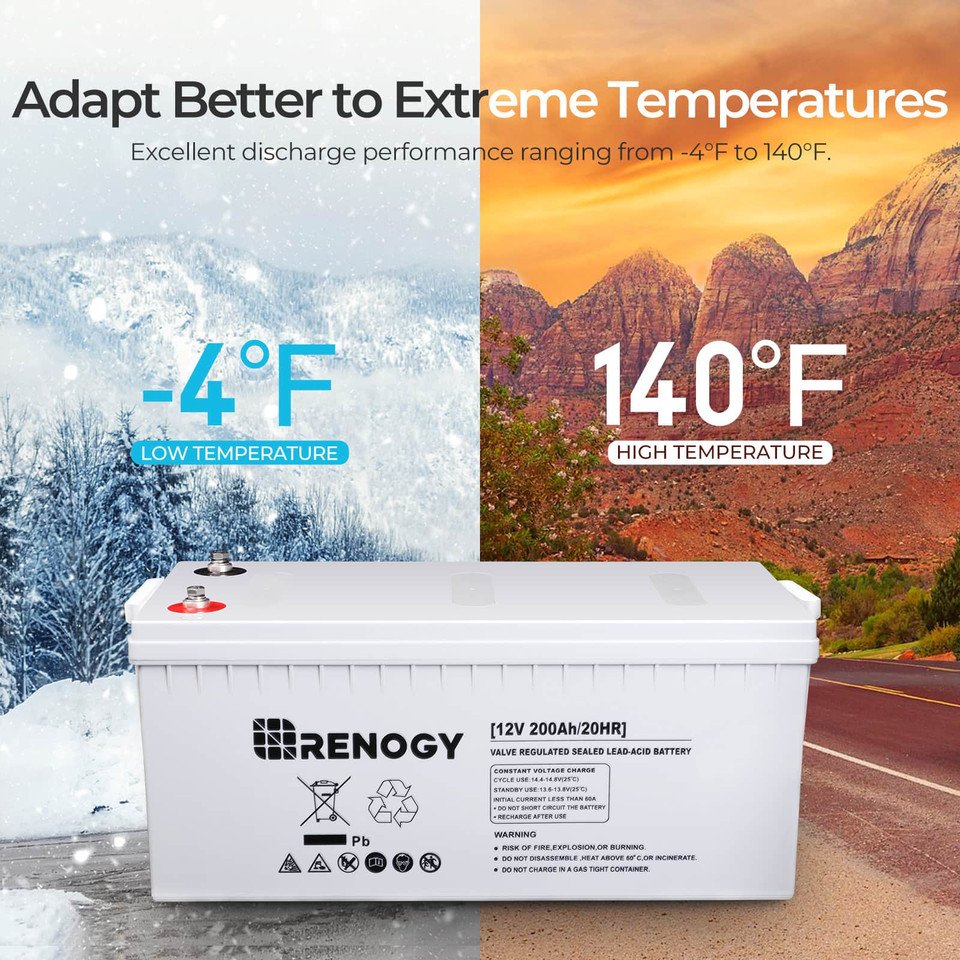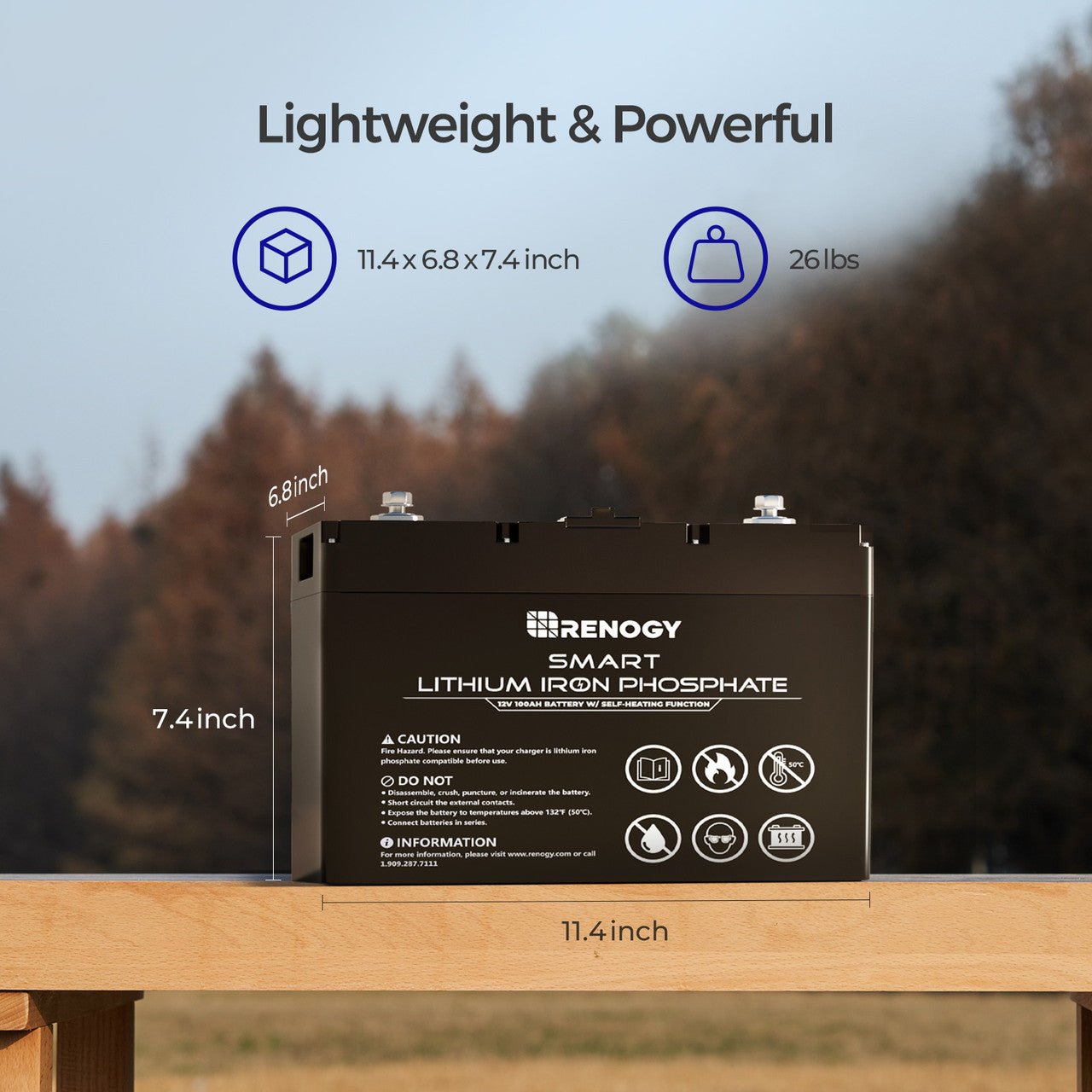
As solar energy becomes increasingly popular for residential use, the importance of choosing the right type of battery to store that energy is more crucial than ever. Solar batteries play a vital role in maximizing the efficiency and reliability of solar power systems, ensuring that energy is available when the sun isn't shining. In this guide, we'll explore the key differences between flooded, gel, AGM, lithium, and lithium iron phosphate (LiFePO4) batteries to help you make an informed decision for your solar energy needs.
Flooded Batteries
- Flooded batteries, also known as wet cell batteries, are one of the oldest and most affordable types of batteries used in solar systems.
- They contain a liquid electrolyte, typically a mixture of water and sulfuric acid, which requires periodic maintenance to check fluid levels and top up distilled water.
- Flooded batteries are durable and can withstand deep discharges, making them suitable for off-grid applications.
- However, they require adequate ventilation due to the release of hydrogen gas during charging, and they must be installed in a well-ventilated area.
- Flooded lead-acid batteries are suitable for budget-conscious consumers in off-grid applications where regular maintenance is feasible.
Gel Batteries
- Gel batteries utilize silica to immobilize the electrolyte, creating a gel-like substance that prevents leakage and makes them maintenance-free.
- They are more resistant to temperature fluctuations and can be installed in various orientations without the risk of spillage.
- Gel batteries have a slower charge rate compared to flooded batteries, which may affect their suitability for high-demand applications.
- Gel batteries are ideal for off-grid applications in remote locations where maintenance is challenging and temperature fluctuations are common.
AGM (Absorbent Glass Mat) Batteries
- AGM batteries feature a fiberglass mat separator that absorbs the electrolyte, allowing them to be completely sealed and maintenance-free.
- They offer faster recharge rates and higher discharge rates compared to flooded and gel batteries, making them ideal for applications requiring quick energy delivery.
- AGM batteries are less prone to sulfation and can operate in a wider range of temperatures, enhancing their reliability and lifespan.
- AGM batteries are suitable for both off-grid and grid-tied solar systems where space is limited, and fast charging is desired.
Lithium Batteries
- Lithium batteries have gained popularity in recent years due to their high energy density, lightweight design, and long cycle life.
- They offer faster charging times, deeper discharge capabilities, and higher efficiency compared to lead-acid batteries.
- Lithium batteries are virtually maintenance-free and have a lower self-discharge rate, allowing for longer periods of energy storage without the need for frequent recharging.
- However, they tend to be more expensive upfront than traditional lead-acid batteries, although their lower total cost of ownership over the long term may offset this initial investment.
- Lithium batteries are ideal for residential and commercial solar systems where space is limited, and high performance and reliability are crucial. These batteries are also ideal for RVs and van/truck camping solar systems.
Lithium Iron Phosphate (LiFePO4) Batteries
- LiFePO4 batteries are a specific type of lithium battery known for their enhanced safety, stability, and longevity.
- They have a higher tolerance for overcharging, over-discharging, and high temperatures compared to other lithium-ion chemistries.
- LiFePO4 batteries are non-toxic and environmentally friendly, with a longer lifespan and superior thermal stability, making them well-suited for demanding solar applications.
- While LiFePO4 batteries may have a slightly lower energy density compared to other lithium-ion batteries, their reliability and safety make them a preferred choice for many solar installations.
- LiFePO4 batteries are well-suited for demanding applications, including off-grid and backup power systems, where safety and durability are paramount. Renogy has a selection of expandable LiFePO4 batteries with a self-heating function, ideal for off-grid systems in colder environments.
Selecting the right type of battery for your solar energy system depends on various factors such as budget, space constraints, energy requirements, and maintenance preferences. Flooded, gel, AGM, lithium, and lithium iron phosphate batteries each offer unique advantages and considerations, so it's essential to weigh these factors carefully before making a decision. By understanding the differences between these battery types, you can ensure that your solar power system operates efficiently and reliably for years to come. Shop Renogy batteries and other solar components now at Solar Generators and Power Stations Plus.







